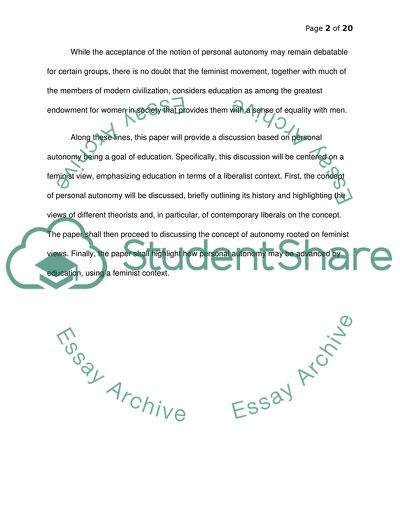Cite this document
(“Achieving Personal Autonomy through Education Dissertation - 1”, n.d.)
Achieving Personal Autonomy through Education Dissertation - 1. Retrieved from https://studentshare.org/education/1751334-modern-education
Achieving Personal Autonomy through Education Dissertation - 1. Retrieved from https://studentshare.org/education/1751334-modern-education
(Achieving Personal Autonomy through Education Dissertation - 1)
Achieving Personal Autonomy through Education Dissertation - 1. https://studentshare.org/education/1751334-modern-education.
Achieving Personal Autonomy through Education Dissertation - 1. https://studentshare.org/education/1751334-modern-education.
“Achieving Personal Autonomy through Education Dissertation - 1”, n.d. https://studentshare.org/education/1751334-modern-education.


